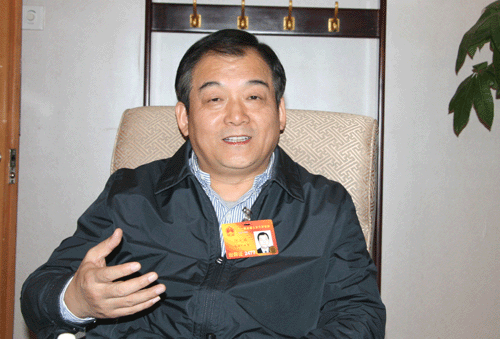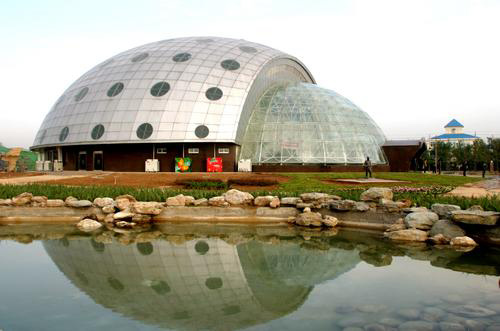Hi-tech Zone models future of agriculture
Yangling National Agricultural Hi-tech Zone in northwest China's Shaanxi Province will become a demonstration zone for modern industrial agriculture in the next three years, the zone's director Zhang Guangqiang told China.org.cn at the National People's Congress on March 10.
 |
|
Zhang Guangqiang |
The 135 square-kilometer zone includes seed production, biochemical products, food processing, and irrigation equipment as its lead industries.
In January, the State Council approved a plan to develop Yangling into a major demonstration base.
Zhang said Yangling will promote innovation in agriculture and related industries. He emphasized the need for mechanization and the used of information technology. The overall aim is to form an industrial chain linking agricultural co-operatives and leading enterprises.
 |
|
View of Yangling National Agricultural Hi-tech Zone [File Photo] |
"We have chosen five main demonstration industries: Greenhouse technology; timber, fruit and flowers; the seed industry; and livestock breeding," said Zhang.
Northwest Agriculture and Forest University, Yangling's innovation and research base, has formed strategic alliances with universities and institutes throughout western China. It invests 50 million yuan (US$7.3 million) and recruits more than 100 teachers annually.
To help turn research results into products, Yangling is holding an agricultural innovation startup competition. "So far we have attracted seven or eight venture capital companies," Zhang said. The winners will be announced at this year's China Yangling Agricultural Hi-Tech Fair (CAF), the largest agricultural fair in China.
 |
|
View of Yangling National Agricultural Hi-tech Zone [File Photo] |
Yangling Hi-tech Zone has also established an international zone to demonstrate advanced products and technologies from overseas.
"These products will be introduced nationwide if they are successful here," Zhang said. "They include products from the U.S., Netherlands, France, Canada and Israel."
Zhang said China needs to speed up product standardization and establish a tracking system for agricultural products. "Only after agricultural production is standardized can the whole industry be industrialized. And this will ensure food safety at source," he said.
 0
0 







Go to Forum >>0 Comments